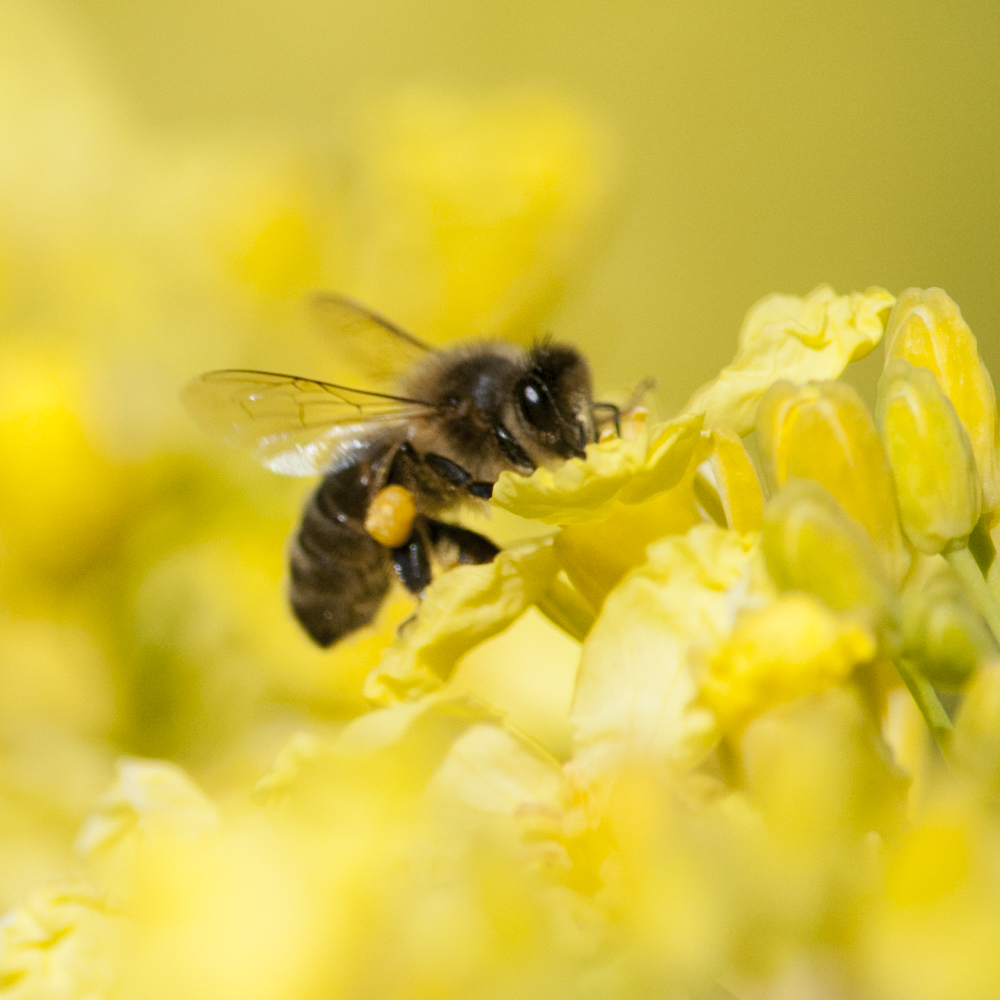Kenneth ran a webinar for Green Schools Ireland on Our Food, Our Health, Our Planet this week, you can watch it below!
One in every three species of bee in Ireland is threatened with extinction and 75% of insect biomass has disappeared in the last 30 years.
I remember as a child driving on the very few motorways that were present in Ireland back then and the windscreen of our car being covered in insect splatters. Sometimes it was so prevalent you could hardly see out, contrast that with a motorway journey by car today, you will hardly notice a splatter.
The decline in insect biomass is well documented and these small insects described by E.O Wilson, 1987 as “the little things that run the world”, (E.O. Wilson, 1987) seems to be as result of a myriad of reasons, from climate change to intensification of agriculture and the use of insecticides.
Last week I highlighted the 870 chemicals that were tested for in a sample of our organic kale, again to reiterate our kale came back completely clean and safe as you would expect on an organic farm (Again I wonder at the requirement of us an organic producer to have our food tested for chemicals….) , but the fact that they test for 870 chemicals suggests that it is possible that this number of chemicals is in circulation in conventional agriculture.
Bees are the poster child of the pollinator insects, and they are beautiful and amazing, and a conversation the other day with Gerry, who is the beekeeper looking after the bees on our farm just shows how special and fantastic, they are, he clearly loves and respects his bees.
Standing in one of our fields during a summer’s evening when our three acres of clover and wildflowers were in full bloom the buzz of the bees was mesmerizing, they were busy and active, and it was amazing. But many of these bees were the solitary bumble bee and they come in all shapes and sizes. The Irish Bumblebee Monitoring Scheme shows population index declines of 14% over six years.
Early in the season all bees benefit from the amazing dandelion and also from the little flowers on sycamore and willow which provide so much food. Native pollinator-friendly trees include Hawthorn, Blackthorn, Willow, Rowan, Wild Cherry and Crab Apple, which also support other native Irish flora and fauna throughout the year.
Another great reason to plant native trees and to protect the trees we have.
Biodiversity, this mix of plant and insect and animal live is a critical and interwoven system which we need to survive, anything we can do to create and protect habitats for all these living creatures will enhance our local biodiversity.
The groundbreaking All-Ireland Pollinator Plan has had such a positive impact on our perception and protection of biodiversity. It just goes to show you what can be accomplished when people come together for a common cause, or in the famous words of Margret Meade,
“Never doubt that a small group of thoughtful, committed, citizens can change the world. Indeed, it is the only thing that ever has.”
Our farm has forestry, and wild Irish native hedgerows, and wild flowers strips, and natural areas left to rewilding, and no chemicals, and of course we safe, clean organic produce food too.
Maybe just maybe we will get back to the days in the not-too-distant future when once again our car windscreens are covered in insects and the bees are thriving and happy.
Your support for our farm and business and farms like ours is a thumbs up for biodiversity, thank you.
Kenneth
PS Don’t forget our farm shop is open every Saturday 10am-5pm, H91F9C5 and of course that you can now book in your Christmas delivery for delivery on Christmas week!

